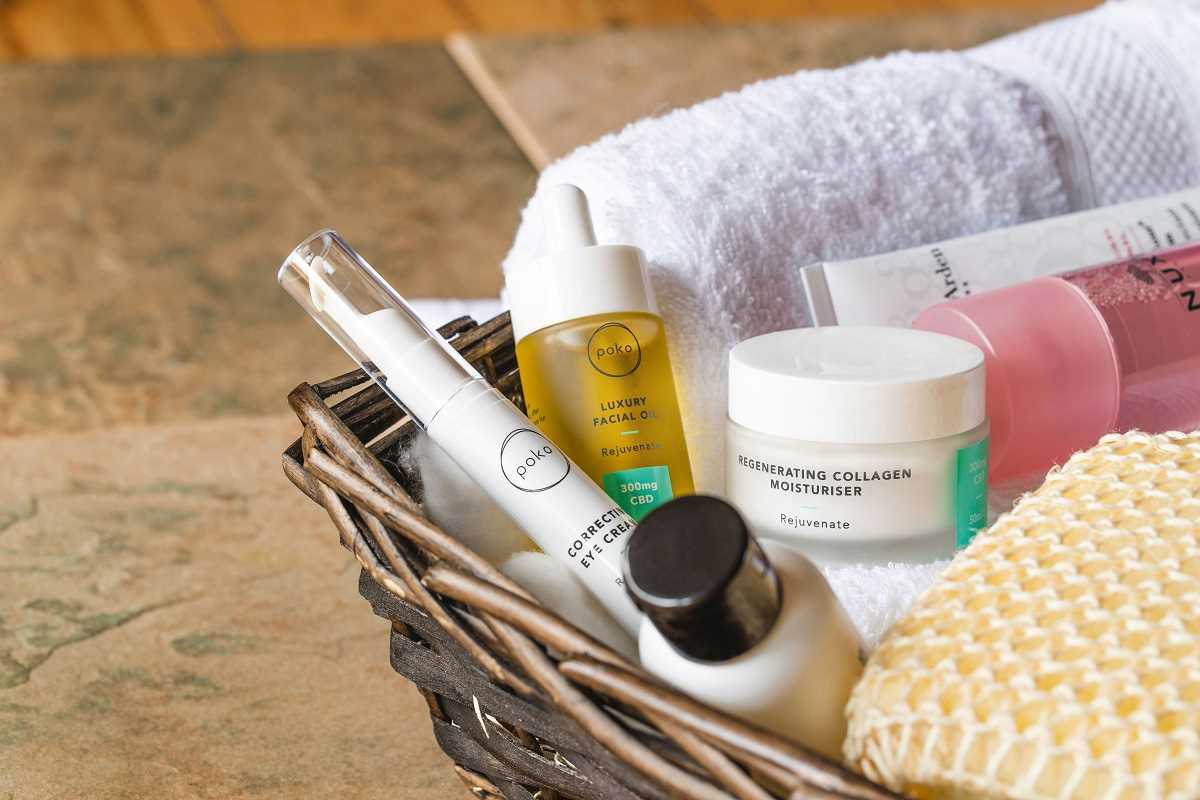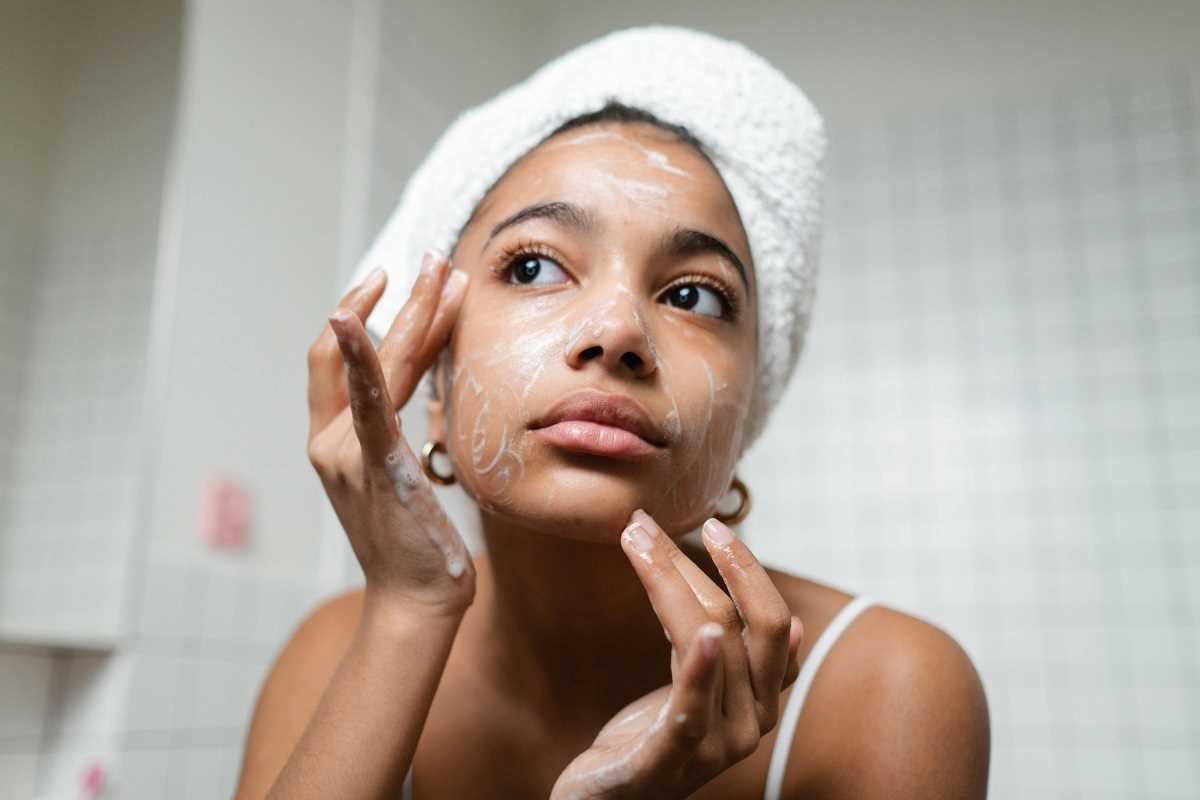Achieving radiant, glowing skin is a goal for many, and while commercial skincare products can help, natural remedies offer an effective and gentle alternative. Incorporating natural methods into your routine not only enhances your skin’s appearance but also minimizes exposure to harsh chemicals. Here’s an expanded look at how you can achieve luminous skin using natural remedies.
Exfoliation for Radiant Skin
Exfoliation is a fundamental step in any skincare routine that promotes glowing skin. By removing dead skin cells, you reveal the fresh, healthy skin beneath, which can appear more vibrant and radiant. One effective natural exfoliant is a homemade sugar scrub, which you can easily make by mixing sugar with coconut oil. The sugar gently buffs away dead skin, while the coconut oil nourishes and moisturizes the skin, leaving it soft and smooth. For a refreshing twist, you can add a few drops of essential oils like lavender or peppermint, which also provide additional skincare benefits.
Exfoliation should be done 2-3 times a week, depending on your skin type. Over-exfoliation can irritate the skin, leading to redness and sensitivity, so it’s essential to find the right balance for your skin’s needs. Regular exfoliation not only enhances your skin’s natural glow but also improves the effectiveness of other skincare products, allowing them to penetrate deeper into the skin.
Hydration: The Foundation of Glowing Skin
Hydration is crucial for maintaining a radiant complexion. Drinking enough water daily helps flush out toxins from the body, which can otherwise manifest as dull, tired-looking skin. Water also keeps your skin hydrated from the inside out, ensuring it remains plump and supple.
In addition to drinking water, you can boost your skin’s hydration levels by applying natural moisturizers. Aloe vera gel is an excellent option, as it hydrates the skin and provides soothing relief from irritation and inflammation. Aloe vera is rich in vitamins and antioxidants that support skin health and promote a glowing complexion. You can apply it directly from the plant or use a pure aloe vera gel available at health stores.
For an extra hydration boost, consider using natural oils like jojoba oil or argan oil. These oils are lightweight, non-comedogenic (meaning they won’t clog your pores), and are packed with nutrients that help to lock in moisture and improve skin elasticity.
The Power of Antioxidants
Diet plays a significant role in skin health, and consuming antioxidant-rich foods is a natural way to enhance your skin’s glow. Antioxidants combat oxidative stress caused by free radicals, which can damage skin cells and accelerate the aging process. By incorporating foods high in antioxidants into your diet, you can help protect your skin from damage and support its natural repair processes.
Berries, such as blueberries, strawberries, and raspberries, are particularly high in antioxidants like vitamin C, which is essential for collagen production—a key component of firm, youthful skin. Leafy greens, including spinach and kale, are also packed with vitamins and minerals that contribute to a healthy complexion. Nuts, especially almonds and walnuts, provide essential fatty acids and vitamin E, which help maintain the skin’s moisture barrier and protect it from environmental stressors.
In addition to eating antioxidant-rich foods, you can also apply them topically. For example, a DIY face mask made from mashed berries or a honey and turmeric mix can provide a direct antioxidant boost to the skin, helping to brighten and rejuvenate your complexion.
Facial Steaming: A Simple Yet Effective Remedy
Facial steaming is a natural remedy that can dramatically improve the look and feel of your skin. The warm steam opens up pores, making it easier to cleanse away dirt, oil, and impurities that can dull the complexion. Additionally, steaming increases circulation, bringing more oxygen and nutrients to the skin’s surface, which enhances its natural glow.
To create a facial steam at home, simply boil water and pour it into a bowl. You can add herbs like chamomile or lavender, which have soothing properties, or a few drops of essential oils like eucalyptus or tea tree for added benefits. Place a towel over your head and lean over the bowl, allowing the steam to envelop your face for about 10 minutes. After steaming, follow up with a hydrating serum or moisturizer to lock in moisture and leave your skin feeling soft and refreshed.
Facial steaming can be done once or twice a week, depending on your skin type. It’s particularly beneficial for those with oily or acne-prone skin, as it helps to clear out clogged pores and reduce the likelihood of breakouts.
The Importance of Sleep for Glowing Skin
Getting an adequate amount of sleep is one of the most important yet often overlooked aspects of maintaining glowing skin. During sleep, your body goes into repair mode, regenerating skin cells and producing collagen, which keeps the skin firm and elastic. Lack of sleep can lead to dark circles, a dull complexion, and an overall tired appearance.
Aim for 7-9 hours of quality sleep each night to give your skin the time it needs to repair and rejuvenate. To enhance the benefits of sleep, consider using a silk pillowcase, which reduces friction on the skin and helps prevent wrinkles. Additionally, applying a nourishing night cream or facial oil before bed can provide extra hydration and support your skin’s natural repair processes.
Glow Up
Achieving radiant, glowing skin doesn’t require expensive products or harsh chemicals. By incorporating natural remedies like exfoliation, hydration, antioxidant-rich foods, facial steaming, and ensuring adequate sleep, you can enhance your skin’s health and appearance. These simple, yet effective, practices are not only beneficial for your skin but also support your overall well-being. With consistency and care, you’ll be able to enjoy a luminous, healthy complexion that reflects the best version of yourself.
 (Image via
(Image via





